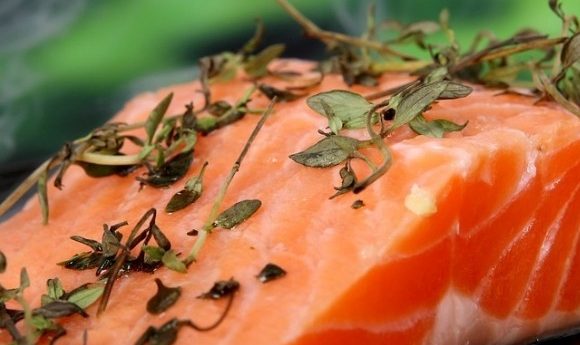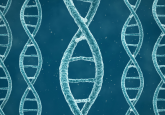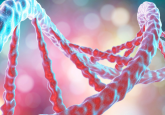Can the key to the perfect diet be found in our DNA?

With the rejection of the one-size-fits-all diet, could personalized nutrition and testing for a “DNA diet” be the next step for finding your perfect healthy lifestyle?
Since the Human Genome Project made sequencing the genome financially viable for general use, numerous companies have sprung up, each promising to crack your personal genetic code. From your ancestor’s past to your medical future, these companies will take your DNA and provide you a service that brings personalized to a whole new level.
As the personalized approach is revolutionizing the way many medical conditions are treated and personalized medicine steps to the forefront of medical research, it seems only logical to apply this idea to public health as people reject the idea of a one-size-fits-all diet. Taking your individual code, the claim is that they can create a diet and fitness plan specific to you – allowing you to lose weight or gain muscle in the most efficient way for your body. But is this all it’s cracked up to be? To what extent do your genes influence your metabolism?
What makes a diet?
The isolation and synthesis of vitamins in the mid-twentieth century launched nutritional science and since then there have been shifts in the consensus of what makes a healthy diet. As research identified more and more risk factors, diets arose advising individuals to cut out what was bad, leading to the low-cal, low-fat, low-sugar diets in common practice today.
Though it’s true that an excess of these substances is detrimental to health, cutting them out altogether is not necessarily the answer and many nutritionists maintain the stance that moderation is key [1]. However, that has not stopped the desire to find the perfect diet and as fad-diets fail, researchers are working towards a more personalized form of nutrition.
Personalized nutrition is a broad term with no agreed upon definition. It can encompass all forms of personalization, from behavioral to genetic, and can overlap with other related terms. One such term is nutrigenetics; the study of the phenotypic response to a diet, depending on the genotype of the individual. This proposes the idea that an individual’s DNA could hold the key to their perfect “DNA diet” and could shed light on the best ways for that person to lose weight and prevent diet-related diseases [2].
18894
The interplay of genetics and nutrition
It is undeniable that genes play an important role in determining our weight, affecting our metabolism and altering our risk of diet-related diseases such as obesity. Back in 2006, researchers found an association between a variant in the INSIG2 gene and obesity, with the obesity-predisposing genotype found in 10% of the population [3]. More recently, researchers from the University of North Carolina at Chapel Hill (NC, USA) identified a number of genetic variants, each playing a role in how the body regulates body-fat tissue and influencing the waist-to-hip ratio of body-fat distribution [4].
There’s more to it than genetics
In the world’s most comprehensive study investigating individual responses to food, researchers from King’s College London (KCL; UK) and Harvard Medical School (MA, USA) have identified substantial and surprising variation in how different people process different food types, even finding differences between identical twins. Recently presented at the American Society for Nutrition’s annual conference (Baltimore, MD, USA, 8—11 June 2019), the PREDICT I study found that the large variation between the participants response to food can only partly be explained by genetic factors, the exact amount varied for each food type [5]. The results suggest that differences in time of meal, gut microbiome and exercise are equally as important as the nutritional composition of the food itself and how the body metabolizes these nutrients is only a small part of a wider story.
“These findings show that the responses to food of a number of key metabolic markers – including triglycerides, insulin and blood sugar – are highly individualized. No one has been able to combine data on this scale before,”
The international study followed 1100 UK and US adults for 2 weeks, closely monitoring their blood sugar, insulin, triglycerides and other blood markers in response to a mixture of controlled or freely chosen meals. 60% of the participants of the study were identical twins and, despite their almost identical genetic make-up and similar environment, they often had different responses to the food they were given. The researchers concluded that less than 50% of the variation shown in response to glucose could be attributed to genetic factors, less than 30% of the response to insulin and less than 20% of the response to triglycerides. Only a weak correlation was found between the response to both fat and carbohydrates [6].
Lead researcher Tim Spector (KCL) commented, “The sheer scale and detail of our scientific project is such that for the first time we can explore tremendously rich nutrition data at the level of an individual. Our results surprisingly show that we are all different in our response to such a basic input as food. It was a real shock to see that even identical twins have such different responses” [7].
“For the first time, we’re expanding large-scale nutritional research beyond blood sugar. These findings show that the responses to food of a number of key metabolic markers – including triglycerides, insulin and blood sugar – are highly individualized. No one has been able to combine data on this scale before,” added study author Sarah Berry (KCL) [7].
The research team presented only their preliminary findings and the full data set will take potentially years to analyze fully. That being said, the insights that can be gained from these early statistics are clear.
“We are omnivores and we do need a diverse diet,” Spector explained. “But if you can just swap some foods around so that you have exactly the same calories and enjoyment, but a lower peak either in glucose or in lipids, then you’re going to put on less weight and be healthier long term” [8].
-
Mediterranean diets: the heart health benefits that might encourage you to make the switch
-
Could anxiety be relieved by changing your diet?
-
A final decision on dietary fats
-
Can a high-fiber diet lead to a better immunotherapy response?
Is it worth it?
With results showing that genes aren’t everything, it raises the question as to the value of such sequencing services. However, by gaining an understanding of our genetic profile, the idea stands that we would make more informed choices when it comes to both food and lifestyle habits. The profiling can also tell us how much or little of a nutrient our specific body considers the standard, allowing us to ensure we are consuming the optimum amount required. This may help in reducing food waste and prevent people spending money on supplements that, while may be beneficial to others are less so to themselves.
As the PREDICT study has shown, genetics is not the whole picture, though that does not mean the information that can be gained from your genes is worthless. Genetic factors can still have a significant influence on weight and metabolism so are not to be ignored, though equally advice gained from them should not be taken as gospel. When it comes to creating the perfect diet, there is still work to be done.
“We are getting closer to being able to provide guidance for each person for what their ideal diet should be,” commented Eric Topol from the Scripps Research Translational Institute (CA, USA). “We’re not there yet, but the [PREDICT] study is another major milestone to get us there” [8].





